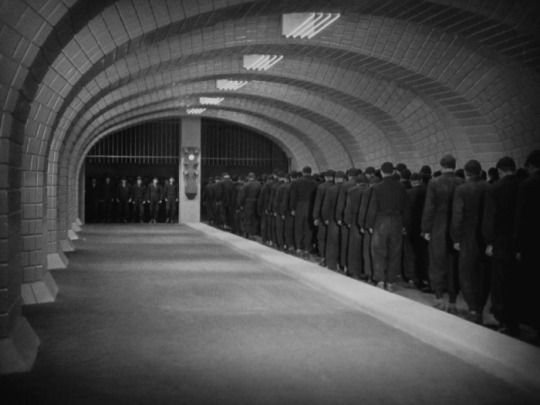Shakespeare/police dog
"Spencer List in FORECLOSURE (2014) directed by Richard C. Ledes."
In the spring of 1986, I took a trip from Paris to London, crossing the channel by ferry, to visit my friend John Kimber. He has since disappeared (John, if you read this, please get in touch). Aboard the ferry, I purchased a couple bottles of Russian vodka manufactured in the Soviet Union. That spring, people living in Europe, including myself, were waiting anxiously to see how far the radioactive contamination from the Chernobyl meltdown would spread. I figured a couple pre-meltdown bottles of Soviet vodka would be bound to be of increasing value—although I had no intention of holding onto them long enough to find out but only of sharing them with John and hopefully some new friends in the London squat where he was living. John and I had been neighbors in Paris in living arrangements comparable in their irregularity to his new London home. In Paris he had taught me about posting index cards in small grocery stores in order to advertise my services as a teacher of English as a foreign language. He also showed me the tricks of how to appear like an experienced hand at my new way of making money.
In Paris John had owned a set of small but powerful speakers and a cassette player. On Sundays I would go over to his place where he would make coffee. We would then play chess with the soundtrack of 2001 playing in the background.
The squat where he was staying in London was a short distance from the British Museum, around the corner from Tavistock Square, where Virginia Woolf and her husband had owned a house. This pedigree of the area clashed with the condition of the squat and the misery of its residents. Where John and I had lived in Paris on our upper floor there was usually a genteel and scholarly quiet and peacefulness between ourselves and our neighbors, mainly Muslim, from Senegal, Iran and Egypt. Here in the London squat, by contrast, during my brief visit there were constant outbursts of explosive anger and at least one knife fight.
"Michael Imperioli in FORECLOSURE (2014) directed by Richard C. Ledes."
I was only going to be visiting John for a few days and I was looking for tourist activities that would connect me to London’s history. In a newspaper I came across a small notice for «A tour of Shakespeare’s London. » It was being offered the next day. This seemed to me to be exactly what I was looking for. I showed it to John while he was sitting with his flatmates. He immediately pointed out that the next day at the same time was taking place a football game (i.e. a game of what in the United States we call soccer) between Chelsea and Liverpool. As he lit one of his hand-rolled cigarettes, John assured me that going to see Chelsea versus Liverpool was the more important use of my time. His London friends concurred vociferously. I knew John was a fanatically dedicated fan of Liverpool football so I was certain his advice was far from unbiased. I pointed out my commitment to writing, reading English literature and particularly the work of Shakespeare. John and the other young Londoners, who were by now showing astonishment at my lack of comprehension, assured me that—without a doubt—if Shakespeare were alive today he would go see Chelsea versus Liverpool. With some unspoken reservations, I agreed to join my host and his friends the next day at the game.
"Mine workers in METROPOLIS (1927) directed by Fritz Lang"
The next day my first taste of what I was about to experience was in the tunnel exiting “the Tube”—as Londoners call their subway system. Those of us who were on our way to the game completely filled the claustrophobic tunnel and were immobile for an uncomfortably long duration of time. There was no end of the tunnel visible ahead or behind us. What came to my mind was that we resembled the mine workers in Fritz Lang’s silent film Metropolis–except among us there were many children, elderly and women. When finally we exited the tunnel and approached the stadium, there was an overwhelming presence of police with dogs where our tickets were taken. The person examining our tickets directed us to our left. John explained that the authorities were worried about “infiltration.” He further explained that the fans for each team were kept strictly apart to avoid bloodshed. However, sometimes fans from one side would buy tickets in an area of seats assigned to the other team and only reveal their true allegiance by starting a conflagration. I had been wondering if there would be any seats left by the time we arrived at our destination. I knew we had arrived in our section in one of the end zones when I saw an official on the other side of the fence that marked the boundary of our section locking us in with a padlock. It was clear no one would be seated. It was a cage we had been locked into and we would be packed standing the entire time.
Today, when I think back, the actual game remains a blur. I remember the Chelsea fans doing Heil Hitler salutes while I stood with the Liverpool fans. At the end of the game they kept us in our locked pen for an additional hour, as we watched newspapers blow over what was now an empty field. We were unlocked only after the Chelsea fans had left—again, so we wouldn’t kill each other. As we walked through the streets police on horses with barking dogs watched us to make sure we went directly down into the subway station. John and his friends had been right: that day this was Shakespeare’s London.



